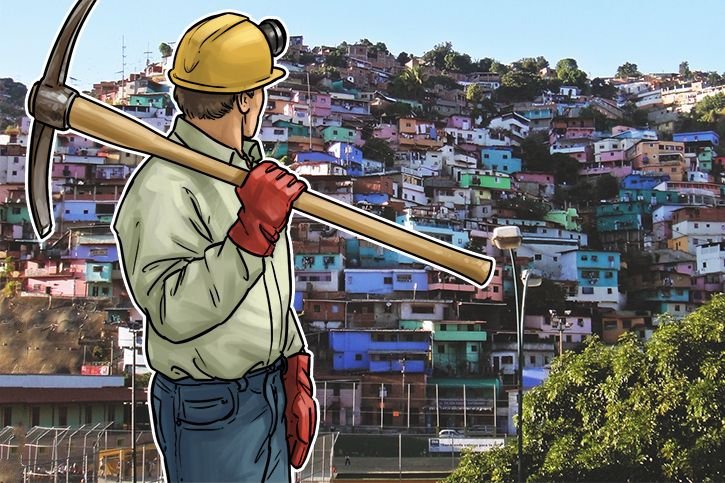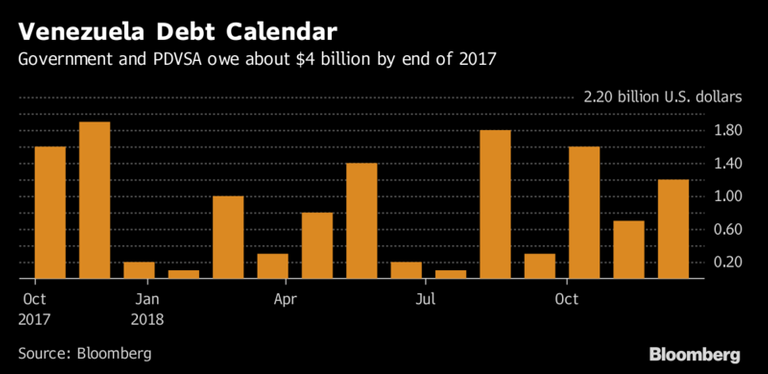In recent months, news about Bitcoin being widely purchased and mined in Venezuela has led to a number of rumors regarding the growth and demand of the cryptocurrency there. Venezuelans have found a better alternative to escape hyperinflation. They’ve taken Bitcoin as an alternative, and mining Bitcoin has become big in the country.
To further utilize the cryptocurrency, data-crunching power is implemented to earn more Bitcoin. People utilize digital equipment such as specialized computers, with Bitcoin miners helping the cryptocurrency market to hit its record high in 2016.
With few utilities that its citizens can still afford, electricity happens to be among them. In fact, electricity power in the country is hugely subsidized and virtually free. This is all thanks to President Nicolas Maduro of the socialist regime.
Such a setup created an opportunity for struggling citizens, as Bitcoin miners can run many transactions and earn at least $500 a month. This can feed a family and provide them their basic needs – goods, medications, and such.
An interview with Daniel Osorio of Andean Capital Advisors on CNBC indicates that the country may soon ‘Bitcoinize’ completely. Osorio, who spends about a week per month in the South American country, was interviewed regarding the hyperinflation problems that Venezuelans are facing. During the interview, he explained that a simple lunch costs upward of 200,000 Bolivars, or about $8-$10.
Bitcoin only
In order to pay for lunch, locals are beginning to accept only Bitcoin or money wires of foreign currencies. The problem, according to Osorio, is that unlike Zimbabwe and other nations where hyperinflation has taken its toll, Venezuela does not have access to enough dollars to manage the economy.
Locals have, therefore, turned completely to Bitcoin in order to function economically. Since Bitcoin is independent of the black market for Bolivars, it represents a fixed exchange platform for business. Near the end of the segment, Osorio says:
“We may well be witnessing the first ‘Bitcoinization’ of a sovereign state.”
Cryptocurrency lovers would argue that this is just the first of many, as liquidity and access increase exponentially.
Default would be the “death sentence” for Maduro’s administration
For most traders, a Venezuelan default is all but certain. The implied probability of one occurring during the next five years has climbed to 98 percent from 91 percent a year ago, according to credit-default swaps data compiled by Bloomberg.
Venezuela’s benchmark dollar bonds due in 2027 rose Thursday to a one-week high of 39.47 cents on the dollar as of 11:30 a.m. in New York.
Knossos Asset Management, the Venezuelan-dedicated hedge fund known to make big bets on the nation’s debt, parked 90 percent of its portfolio in cash this summer, citing concern that a default would spur regime change. It reasons that investors would seek to seize state-owned assets such as oil, which accounts for 95 percent of the country’s export revenue, making it all but impossible for Venezuela to import basic goods and services that are already in short supply. Danske Capital, the 18th-largest reported holder of Venezuelan bonds, has said a default would be the “death sentence” for Maduro’s administration.
Some $3.5 billion in debt payments come due by November on about $70 billion owed by the government and its state oil company.
“A default will bring about a change in government,”
said Francisco Ghersi, co-founder of Knossos. Government officials "would be entering a new territory that is so complex that they wouldn’t be able to manage."
Others are aiming at an extended horizon. Money managers from Goldman Sachs Group Inc. to Grantham Mayo Van Otterloo & Co. scooped up more longer-dated Venezuelan bonds this year, according to data compiled by Bloomberg.
The thinking among some bond buyers is that a new opposition-controlled government could negotiate a restructuring that’s would pay them generously.
“Both bondholders and the new government have an incentive on both sides to restructure the debt and also attract investors to the economy,”
said Shamaila Khan, the director of emerging markets at AllianceBernstein LP, the ninth-largest reported holder of Venezuelan debt.
"In fact, defaults around the globe have triggered governmental change less than 15% of the time since 1992.
In Venezuela’s case, Maduro has enough support from the nation’s powerful military to weather any fallout. The Maduro regime is staying in power through extreme conditions. There’s no reason to expect more extreme conditions being the factor that topples him,”
said Harvard’s Carmen Reinhart, co-author with Kenneth Rogoff of “This Time Is Different: Eight Centuries of Financial Folly".
P.S.
Follow, Resteem and VOTE UP @imib


This is very interesting. Thanks @imib for a good summary and use of sources. Following :)
Yes, thank you. Adequate :)
BTW Venezuela in trouble. PDVSA needs to make a $842m bond payment on Oct. 27. Bond is backed by stake in U.S. Refiner Citgo. No grace period.
Money supply (M2) is at 42.3 trillion BsF. It is up 6.91% in one week.
nice
Thanks :)
@reported has voted on behalf of @minnowpond. If you would like to recieve upvotes from minnowpond on all your posts, simply FOLLOW @minnowpond. To be Resteemed to 4k+ followers and upvoted heavier send 0.25SBD to @minnowpond with your posts url as the memo
@minnowpond1 has voted on behalf of @minnowpond. If you would like to recieve upvotes from minnowpond on all your posts, simply FOLLOW @minnowpond. To be Resteemed to 4k+ followers and upvoted heavier send 0.25SBD to @minnowpond with your posts url as the memo